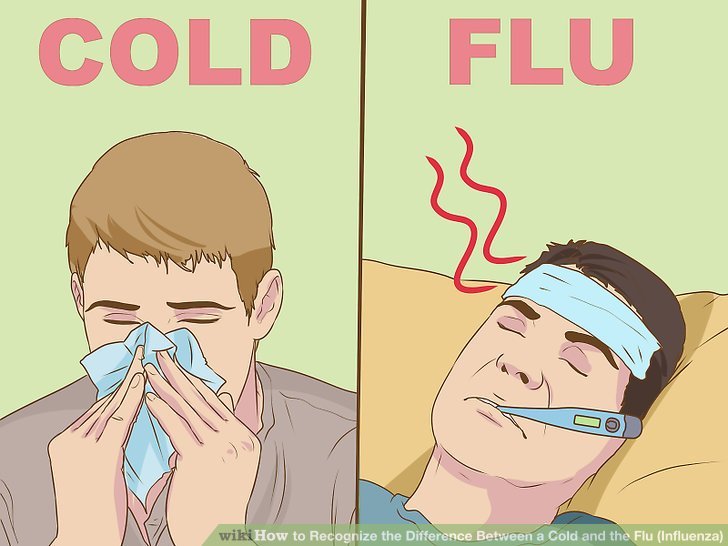The common cold and the flu may seem similar at first. They are both respiratory illnesses and can cause similar symptoms. But different viruses cause these two conditions. Your symptoms will help you tell the difference between the two.
Both a cold and the flu share a few common symptoms. People with either illness often experience:
- a runny or stuffy nose
- sneezing
- body aches
- general fatigue
- As a rule, flu symptoms are more severe than cold symptoms.
Another distinct difference between the two is how serious they are. Colds rarely cause other health conditions or problems. But the flu can lead to sinus and ear infections, pneumonia, and sepsis.
To determine whether your symptoms are from a cold or from the flu, you need to see your doctor. Your doctor will run tests that can help determine what’s behind your symptoms.
If your doctor diagnoses a cold, you’ll only need to treat your symptoms until the virus has run its course. These treatments can include using over-the-counter (OTC) cold medications, staying hydrated, and getting plenty of rest.
Taking an OTC flu medicine early in the virus’ cycle may also help. Rest and hydration are also beneficial for people with the flu. Much like the common cold, the flu just needs time to work its way through your body.